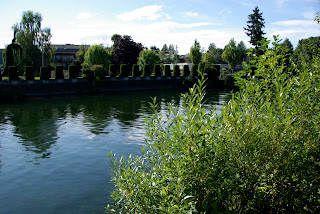"External phenomena arise because of the mind of vexation. Although it seems that we all share the same objective reality, actually the world I experience is quite different from the world you experience. Each one of us has different feelings and experiences which are reflected in the so-called objective reality around us. The tree I see is not the tree you see. Even those who share the same family or lifestyle may have markedly different perceptions about the world. The world varies as vexations vary. For some, the mind is in constant motion; their heads are filled with ideas, worries and preoccupations. For others, the mind is calmer. Buddhanature, however, does not move at all. It is utterly quiescent.
Buddha-nature, which is also known as Tathagatagarbha, contains the seed of Buddha-hood. It is not that a Buddha arises when someone becomes enlightened, for the Buddha-nature has never been separate from that person. Tathagatagarbha never increases or decreases. It is better to say that with Buddha-nature there is the potential to realize Buddhahood. "Coming and going, arising and perishing" are viewpoints of ordinary sentient beings."...from Master Sheng Yen in Complete Enlightenment, pg. 100.
 |
| The Woodcutter's Buddha and Meditation Stool by Nancy Desjarlais http://nancydesjarlais.blogspot.com/ |
Also check out these Chan sites of interest:
2. How
to chan meditate:
3. Master
Sheng Yen in Facebook
4. The Western Chan Fellowship at http://www.westernchanfellowship.org/
AND in Nanaimo http://www.bodhipeacecollective.org/ and http://nanaimomeditationgroups.weebly.com/
Call Adrian at 250 898 8201,
email adrian2@shaw.ca
Please notify me if you wish to be
removed from the email list.










